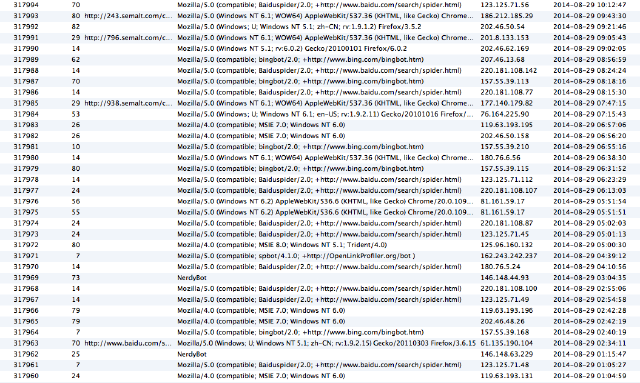
How to run cross browser testing cheaply
Cross browser testing is a standard part of the testing process. No matter what you build – small page, online form or huge service. It’s really important to test it across multiple browsers.

Cross browser testing is a standard part of the testing process. No matter what you build – small page, online form or huge service. It’s really important to test it across multiple browsers.
I’m huge fan of Continuous Integration and all possible automation which can save me any time during development process. I’m using plenty of different tools in my daily work, but there is always place for something new.
Basically each decent IDE has FTP client build in, but sometimes you don’t have access to your IDE but obviously you got your code in GIT repository. If you are using Bitbucket or Github you are lucky – you can use FTPloy . It’s super simple service, which gives you option to bind your repository with FTP server. After change is made – it deploys your files on the server. Nothing more, nothing less.
This article is related to my previous one about setting up PHPCodeSniffer with CodeIgniter coding standards.
Installation on Linux boxes is pretty yeasy:
sudo pear channel-update pear.php.net
yum install php-pear-PHP-CodeSniffer php-phpunit-phpcpd
On Mac OS X you have couple options. Pear or Homebrew:
brew install php-code-sniffer
And following that, on regular boxes CodeSniffer will be here:
/usr/share/pear/PHP/CodeSniffer/Standards
on Mac OS CodeSniffer will be located here:
/usr/lib/php/pear/PHP/CodeSniffer/Standards or… /usr/local/Cellar/php-code-sniffer/1.5.6/CodeSniffer/Standards
CodeIgniter standard can be downloaded from this location https://github.com/thomas-ernest/CodeIgniter-for-PHP_CodeSniffer

services to capture REST API calls
Just bunch of very useful tools to help us with testing and building REST API.
requestb.in – just bin for your API calls. Very easy to capture and test calls from APPS
www.runscope.com – older brother, or actually mother of requestb.in – full featured serivce to test APIs

Capturing and storing longs it’s bit painful task. It’s not so bad if you are running one application on one server, but if you go with multiple servers, or just don’t want to “login” to check logs – you have to go with remote logging tools. I know only 2 and didn’t look for more. First of them is tool called Sentry second one is LogEntries .